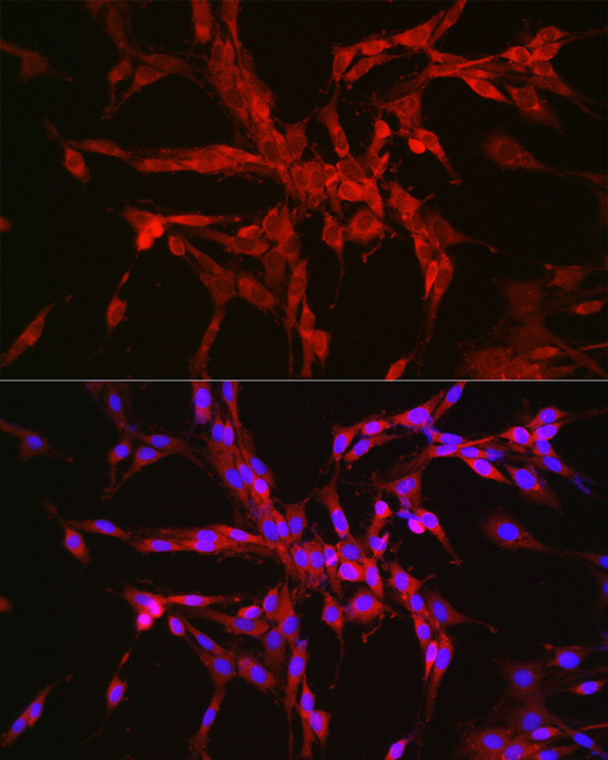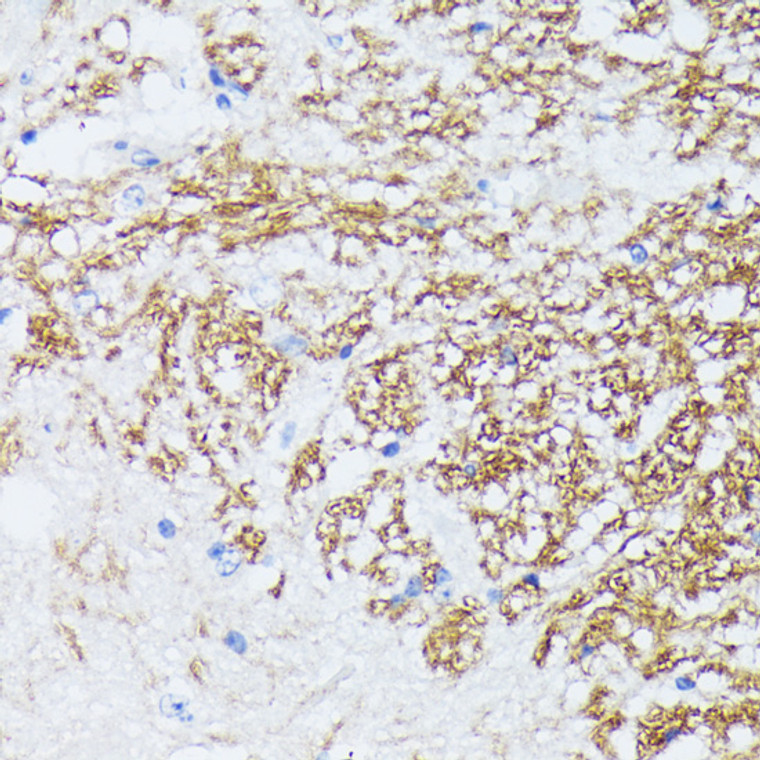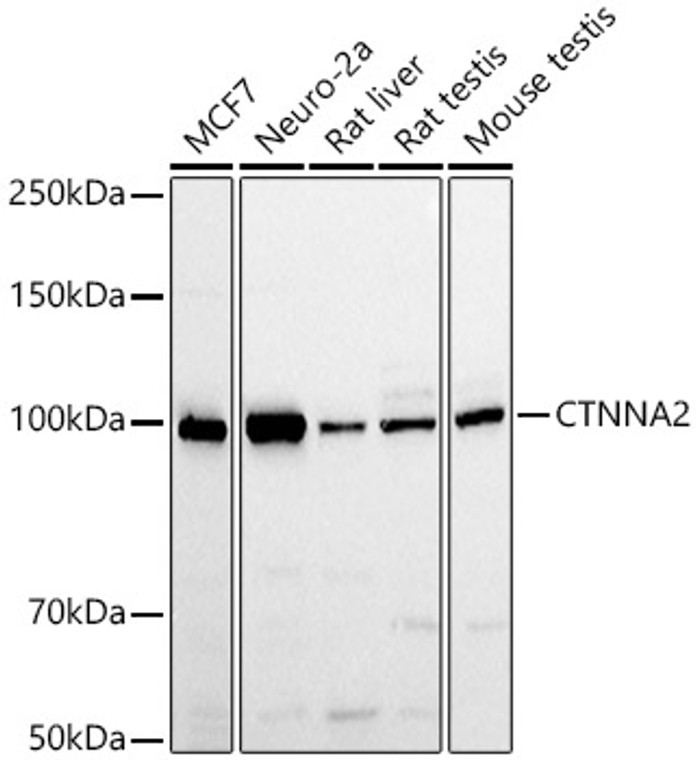| Host: |
Rabbit |
| Applications: |
WB/IHC/IF |
| Reactivity: |
Human/Mouse/Rat |
| Note: |
STRICTLY FOR FURTHER SCIENTIFIC RESEARCH USE ONLY (RUO). MUST NOT TO BE USED IN DIAGNOSTIC OR THERAPEUTIC APPLICATIONS. |
| Short Description: |
Rabbit polyclonal antibody anti-CTNNA2 (167-290) is suitable for use in Western Blot, Immunohistochemistry and Immunofluorescence research applications. |
| Clonality: |
Polyclonal |
| Conjugation: |
Unconjugated |
| Isotype: |
IgG |
| Formulation: |
PBS with 0.05% Proclin300, 50% Glycerol, pH7.3. |
| Purification: |
Affinity purification |
| Dilution Range: |
WB 1:500-1:1000IHC-P 1:50-1:200IF/ICC 1:50-1:200 |
| Storage Instruction: |
Store at-20°C for up to 1 year from the date of receipt, and avoid repeat freeze-thaw cycles. |
| Gene Symbol: |
CTNNA2 |
| Gene ID: |
1496 |
| Uniprot ID: |
CTNA2_HUMAN |
| Immunogen Region: |
167-290 |
| Immunogen: |
Recombinant fusion protein containing a sequence corresponding to amino acids 167-290 of human CTNNA2 (NP_001269526.1). |
| Immunogen Sequence: |
TNEQDLANRFKEFGKEMVKL NYVAARRQQELKDPHCRDEM AAARGALKKNATMLYTASQA FLRHPDVAATRANRDYVFKQ VQEAIAGISNAAQATSPTDE AKGHTGIGELAAALNEFDNK IILD |
| Tissue Specificity | Expressed in neural tissues, with strongest expression in fetal and adult brain. Expressed in the developing cortical plate and marginal zone of 20-week-old human fetal brain. |
| Function | May function as a linker between cadherin adhesion receptors and the cytoskeleton to regulate cell-cell adhesion and differentiation in the nervous system. Required for proper regulation of cortical neuronal migration and neurite growth. It acts as negative regulator of Arp2/3 complex activity and Arp2/3-mediated actin polymerization. It thereby suppresses excessive actin branching which would impair neurite growth and stability. Regulates morphological plasticity of synapses and cerebellar and hippocampal lamination during development. Functions in the control of startle modulation. |
| Protein Name | Catenin Alpha-2Alpha N-CateninAlpha-Catenin-Related Protein |
| Database Links | Reactome: R-HSA-525793 |
| Cellular Localisation | Cell MembranePeripheral Membrane ProteinCytoplasmic SideCytoplasmCytoskeletonCell JunctionAdherens JunctionCell ProjectionAxonNucleus |
| Alternative Antibody Names | Anti-Catenin Alpha-2 antibodyAnti-Alpha N-Catenin antibodyAnti-Alpha-Catenin-Related Protein antibodyAnti-CTNNA2 antibodyAnti-CAPR antibody |
Information sourced from Uniprot.org
12 months for antibodies. 6 months for ELISA Kits. Please see website T&Cs for further guidance












